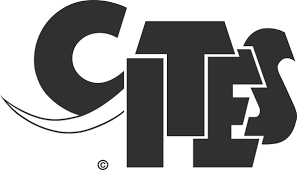 15 January 2016: The sixty-sixth meeting of the Standing Committee (SC66) of the Convention on International Trade in Endangered Species of Wild Fauna and Flora (CITES) discussed a long agenda to advance the conservation and sustainable use of fauna and flora, and address wildlife crime.
15 January 2016: The sixty-sixth meeting of the Standing Committee (SC66) of the Convention on International Trade in Endangered Species of Wild Fauna and Flora (CITES) discussed a long agenda to advance the conservation and sustainable use of fauna and flora, and address wildlife crime.
Agenda items included, inter alia: livelihoods; captive breeding; and species trade and conservation, with a focus on elephants and National Ivory Action Plans, rhinoceros, Asian big cats, saiga antelope, great apes, pangolins, sharks and rays, sturgeons and paddlefish, ebony and rosewoods and African teak. Close to 500 participants from national governments, intergovernmental organizations, and non-governmental organizations attended the meeting.
In his opening remarks to SC66, CITES Secretary-General John Scanlon highlighted that due to the political support and substantial sources of funding available to CITES Parties, and direct support for CITES implementation, much had been achieved with regard to combating illicit trafficking and ensuring the legality and sustainability of trade in Appendix II listed species.
Among its various decisions, SC66 suspended trade in specimens of wildlife originating in Guinea Bissau, Liberia and Venezuela for failure of these countries to adopt appropriate measures for the effective implementation of the Convention. With regard to 14 Parties (Bhutan, the Central African Republic, the Republic of the Congo, Grenada, Guinea, Mali, Mongolia, Nicaragua, Panama, Rwanda, Sao Tome and Principe, San Marino, Solomon Islands and Vanuatu) that have failed to submit annual reports for three consecutive years and have not provided adequate justification for not submitting them, SC66 agreed to suspend all trade with them if their annual reports are not submitted within 60 days.
At the margins of SC66, the International Consortium on Combating Wildlife Crime (ICCWC) launched its Strategic Programme for 2016-2020, detailing targeted activities, operations and initiatives that the Consortium will deliver to support the capacity of wildlife law enforcement agencies in combating and taking action against illicit wildlife trafficking and related crimes. Also on the sidelines, the CITES Secretariat launched a ‘Handbook on CITES and Livelihoods,’ together with the General Secretariat of the Organization of American States (OAS). The publication aims to support implementation of the Convention by enabling countries to assess the impacts of CITES listings on the livelihoods of poor rural communities.
At the close of the meeting, Scanlon announced that Tajikistan had joined the Convention as its 182nd member, with the accession to become effective on 30 March 2016. SC66 convened from 11-15 January 2016, in Geneva, Switzerland. Its recommendations will inform the 17th meeting of the Conference of the Parties to CITES (CoP17), set to take place in Johannesburg, South Africa, from 24 September to 5 October 2016. [IISD RS Coverage of CITES SC66] [CITES Press Release, 13 January 2015] [CITES Press Release, 12 January 2015] [CITES, Press Release, 11 January 2015] [Opening Remarks by CITES Secretary-General] [CITES Press Release, 19 January 2015]